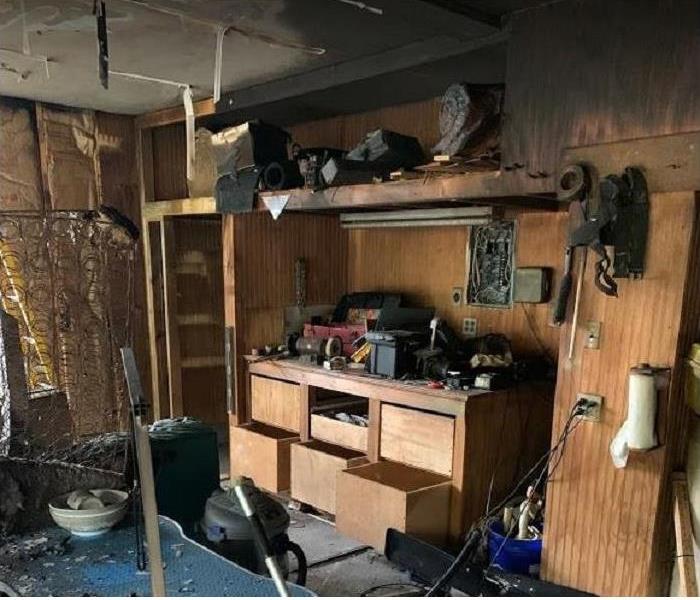How SERVPRO Removes Fire Damage Odors in Wilmington
3/13/2020 (Permalink)
 Should fire damage your home, call SERVPRO. Our team knows how to remove the odors and restore your home.
Should fire damage your home, call SERVPRO. Our team knows how to remove the odors and restore your home.
Wilmington Fire Damage Solutions for Persistent Odors
When a fire eats its way through your Wilmington home, it does devour building materials and contents. Depending on the composition of the structural components or articles burned, the temperature, and the amount of oxygen available, the flames often can incompletely consume their fuel. The residues left behind contain liquids, vapors, tars, and tiny particles of the things burned but not destroyed.
Lingering Particles Mean Long-term Odors
The tiny particles, at first airborne as solids in smoke, eventually coat the surfaces in your Wilmington residence, fire damage typically called soot. Trapped inside each soot particle, nearly impossible to see one by one, are malodorous chemical compounds. As we work to clear away fire debris and residues, the stench naturally reduces. Deep cleaning to dissolve and suspends the soot permits us to rinse or wipe away the particles, and their odors. Care must be taken not to drive soot more deeply into permeable materials as the particles are sharp-edged as well as smelly.
Oder Risks Depending on Types of Soot
Lighter, ashy soot produced by hot, high oxygen burning of paper and wood brushes, vacuums off surfaces. Dry chemical sponges offer an excellent option on ceiling and walls that are less durable. Because these materials burned more completely and cleaned up relatively quickly, odors are less of an issue for the SERVPRO team.
Sticky, dark soot after electrical, plastic, fiber or low-oxygen smoldering fires need a cleanser with wetting agents or surfactants and more agitation to release. The chemical makeup of the cords, rubbers, and plastics, and synthetic fabrics plus the adhesive nature of the soot make odor control more evasive.
Protein-based soot is the dehydrated residues of food, oils, and grease, hard to remove, and extremely pungent. Coating removal uses solvents abrasive tools, and the smell is tenacious.
Odor Reducing and Eliminating Opportunities
SERVPRO deodorizing specialists have other possibilities available, and we work until your home sees the best results. We might use deodorant blocks or granules in hard to clean spots like HVAC systems to mask smells. Innovative technologies such as wet or thermal fogging, ozone machines, and hydroxyl generators pair with unpleasant odiferous particles and change their chemical composition. These actions at a molecular level neutralize the smell, rendering this kind of fire damage solved, “Like it never even happened.”
Have confidence that the professionals at SERVPRO of New Hanover pledge to make every effort to eliminate the lingering smell after fire damage. Contact (910) 762-8180 as soon as possible so we can get to work.
More about Wilmington.






 24/7 Emergency Service
24/7 Emergency Service